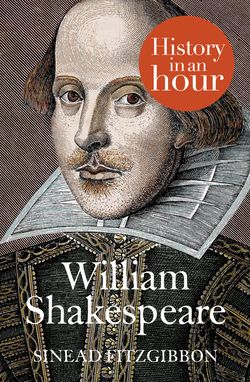Читать книгу William Shakespeare: History in an Hour - Sinead Fitzgibbon - Страница 10
The King’s Men
ОглавлениеUltimately, this loyalty would pay off – and not just in financial terms. As early as 1594, the company had begun to garner royal recognition. Court documents from that year record payments to Shakespeare and two other members of the Lord Chamberlain’s Men for ‘two several comedies or interludes showed by them before Her Majesty [Queen Elizabeth] in Christmas time last’. This royal seal of approval would endure; when James VI of Scotland succeeded Elizabeth to the throne in 1603, the new king granted his patronage to the company. From that time, they were no longer known as the Lord Chamberlain’s Men, but now boasted the somewhat loftier title of the King’s Men. Such was their elevated status that Shakespeare and his colleagues attended James’s coronation in 1604, decked out in the king’s livery which had been made especially for the occasion from four-and-a-half yards of scarlet fabric.
The end of the Tudor dynasty had given new hope to the country’s beleaguered Catholics, many of whom were optimistic about the possibility of the new Stuart king relaxing restrictions on the practice of their Roman religion. This hope stemmed from the fact that, although James himself was raised in a strict Calvinist tradition, his mother was the Catholic Mary, Queen of Scots, whose execution at the hands of Elizabeth had cast her in the role of Roman martyr. But when James ultimately proved disinclined to improve conditions for Catholics in his realm, religious hostility reached boiling point once again. The failed Gunpowder Plot of 1605, which saw a band of Catholic rebels conspire to blow up the king and his Parliament at Westminster, was the unhappy result.
When Guy Fawkes, the first of the Gunpowder Plot conspirators to be captured, was brought before the king for questioning, he brazenly declared that it had been his intention to blow James and his Scottish court all the way back to Scotland. This statement hinted at an underlying xenophobia against the Scottish, which went beyond the question of religion. If, indeed, Fawkes did hold such a prejudice, he was not alone – given the long and fraught history between the two countries, many of his fellow English were far from happy to find themselves the subjects of a Scottish monarch. Understandably, the authorities were not prepared to tolerate any form of anti-Scottish sentiment, and strict controls were placed on the content of plays; it was the brave Jacobean playwright who dared to satirize the Scots too overtly, as such an offence could be viewed as seditious, if not treasonous.
But censorship aside, James I was a great fan of the theatre. During his reign, the royal family awarded its patronage to a number of theatre companies, in addition to the King’s Men. Theatrical performances, always a favourite at Elizabeth’s court, more than doubled in number during the early Jacobean period. The tastes of the new Royal Court had a marked influence on the works the playwrights produced. While Elizabeth had preferred comedies, the Stuart king and his entourage had a taste for tragedy – it is interesting to think that, in part at least, we have a king’s whim to thank for the existence of such enduring and powerful plays as King Lear, Macbeth and Othello.
